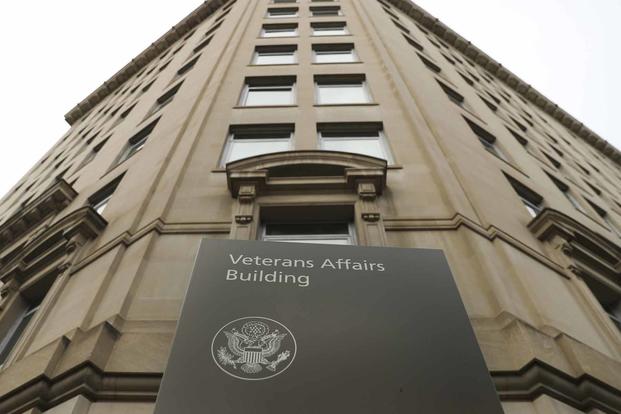The Department of Veterans Affairs will need at least $23 billion more than the Biden administration has requested for next year's budget to meet growing demand for health care and services, according to a report released Monday by several large veterans' organizations.
Most of the increase would go to health care provided by the VA and civilian providers to cover the cost of care deferred during the COVID-19 pandemic. With many patients delaying treatment or doctors' visits because of the pandemic, the report anticipates a surge of more complicated and expensive medical care as patients return to routine medical appointments.
The report, known as the Independent Budget, calls for a 20% increase in the VA's discretionary spending for fiscal 2023 -- funding that doesn't include mandatory obligations such as pensions and disability compensation -- over the administration's 2022 proposal, which has yet to be finalized by Congress.
Read Next: Another Leaked Video Offers a Dramatic View of F-35C Crash Aboard Carl Vinson
The document calls for the VA's total discretionary budget to $140 billion, up from a proposed $117 billion.
"As we enter into 2022, COVID's impact remains a challenge for VA, with the spread of the virus and disruptions to health care systems continuing," Randy Reese, executive director of DAV Washington Headquarters, said in a press release.
"In this environment, we made cautious recommendations based on historical trends to ensure the needs of our nation's ill and injured veterans are met," he said.
The Independent Budget is crafted each year by Disabled American Veterans, Paralyzed Veterans of America and Veterans of Foreign Wars to advise and influence Congress as it deliberates the approaching year's federal budget.
According to the report, the groups' priorities include: health care programs, which would see a $1.8 billion increase over the current budget proposal; caregiver support programs, with a $490 million increase; services for homeless veterans, with a suggested $395 million increase; and mental health services and suicide prevention, which would receive a $288 million boost.
The proposal also calls for a total of $3.8 billion for construction projects to replace aging infrastructure and medical facilities -- projects that would have received more funding under the Biden administration's original infrastructure bill but were scaled back before the bill became law.
The report also recommends $3.9 billion for the Veterans Benefits Administration, which would include increased funding for the Board of Veterans Appeals to handle a growing backlog of appeals hearings.
The White House is required by law to release its proposed federal budget by the Monday of the first full week of February. This year, however, both chambers are still debating the Biden administration's fiscal 2022 budget request for the VA of $270 billion, and the White House is expected to release its fiscal 2023 budget in the coming month.
Congress continues to deliberate the final 2022 budget, and lawmakers introduced a bill Monday that would extend the deadline to ensure that negotiations may result in an omnibus spending package instead of a continuing resolution that would fund the federal government through the end of the fiscal year.
In the absence of new appropriations, the department continues to operate under the budget signed Dec. 27, 2020, by then-President Donald Trump, which contained $243 billion for the department.
The VA's budget has quintupled since 2001, when it was roughly $45 billion. Some lawmakers have started raising concerns over the department's ballooning budget.
"At what point does VA become adequately funded?" wrote Illinois Rep. Mike Bost, ranking Republican on the House Veterans Affairs Committee, and others in a letter to the House Budget Committee last May. "We believe some level of continued annual increases, above general inflation, would be warranted as long as they were supported by demand and demonstrated as necessary to continue this improvement trend."
The VA's budget is the third largest among Cabinet departments.
The report serves as a framework for congressional planners, the VA and the White House to use when considering programs and services for veterans, the authors noted.
"While this year's report is now complete, it is now imperative Congress and VA work together, along with veterans service organizations and other veterans stakeholders to put veterans interests on the top of their list." said Bob Wallace, executive director of VFW Washington Office, in a release.
-- Patricia Kime can be reached at Patricia.Kime@Monster.com. Follow her on Twitter @patriciakime.
Related: VA Gets Another Massive Funding Increase in Biden's First Budget













